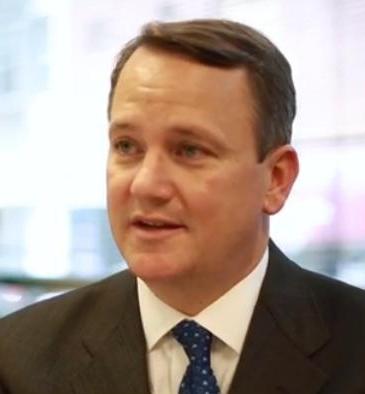One long-term after-effect of the COVID-19 pandemic and its economic disruption could be a heightened interest in shopping locally, Worcester Regional Chamber of Commerce head Tim Murray suggested Thursday.

But first, those locally owned small shops and other businesses need to survive a period of prolonged closures. Many, Murray said, face a “long slog” to recovery.
“This is going to reinforce, I think, hyper-local,” Murray said during a virtual town hall discussion with two Worcester-area lawmakers, Senate President Emerita Harriette Chandler and Sen. Michael Moore.
“Hopefully, if people are less inclined to go out to the big-box or larger stores because they don’t want to be exposed to large crowds or people, I think this is going to hopefully, over the longer term, help some of our smaller neighborhood businesses in the city or in towns where people live,” Murray said. “More focus on local.”
After nearly two months with most businesses closed to customers and workers under an emergency order from Gov. Charlie Baker, Massachusetts is now in the earliest stages of a gradual economic and societal reopening.
Hair salons, pet groomers and car washes are allowed to open next week, and retailers will be able to conduct sales via curbside pickup. Restaurants will remain limited to takeout and delivery until the second phase of the plan, which can begin no earlier than June 8.
After the first phase, which started Monday, the plan does not assign specific start dates to the three subsequent phases. Baker has said the transitions will be based on public health data and each phase will last at least three weeks.
Murray, who served as lieutenant governor under Gov. Deval Patrick, said the Worcester Chamber and other chambers of commerce gave input to the reopening advisory board that developed the plan.
“The single biggest piece of advice that we gave was when they roll out the reopening plan to give dates, lay out a chronology and try to paint a picture of how this process is going to work, and I think that they did that,” he said. “I think that was important.”
For businesses frustrated to not be included in the first phase, Murray said the Worcester Chamber has advised them to use this time to develop a reopening plan, talk to municipal officials and “do whatever they can to secure personal protective equipment.”
“We want to make sure that they’re using the time constructively, so that they’re ready to go,” he said.
Murray said it will vary by business whether new restrictions — like capacity limits for restaurants — will enable them to bring in enough revenue to stay viable. He said it’s important for people to spend their money locally, within their household’s budgets, to keep those dollars in the community.
“We’ve got to be realistic that this has had a tremendously adverse effect on our business community, particularly our small businesses, and it’s going to be a long slog for them, and collectively us all, to get back before we were prior to the shutdowns and the COVID-19 crisis hitting us,” he said.
Chandler raised the idea of converting some Worcester streets into pedestrian areas, to add more space for activities like outdoor dining.
“I think we have to think so out of the box,” she said. “This is a time to remake our economy, to restructure it in so many ways. Just because we’ve always done something one way, we don’t have to do it anymore.”
Making it easier for restaurants to seat diners outside is a concept that appears to be on the minds of government officials and business leaders in different regions of the state.
Boston Mayor Martin Walsh on Thursday announced a series of steps the city is taking to help restaurants eventually return to full service, including lifting a prohibition on selling alcohol without food in outdoor space and surveying businesses to identify “opportunities for temporary extensions onto outdoor space both on public and private property.”
Wendy Northcross, CEO of the Cape Cod Chamber of Commerce, said earlier this week that Cape restaurants are also looking at how to expand outdoors.
“We’ve been working with our communities to try to accelerate that process for them, to make it easier for them to expand to the outside, even temporarily, for a year or two,” she said.
At the state level, Speaker Robert DeLeo told the Greater Boston Chamber of Commerce Thursday that House lawmakers have heard from restaurant owners who would like to alter their existing licenses to allow outdoor alcohol sales and that they would would work with committee chairs, local authorities and the Alcoholic Beverages Control Commission to find a solution.
